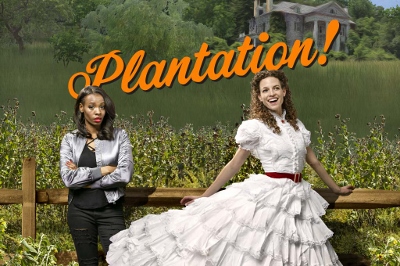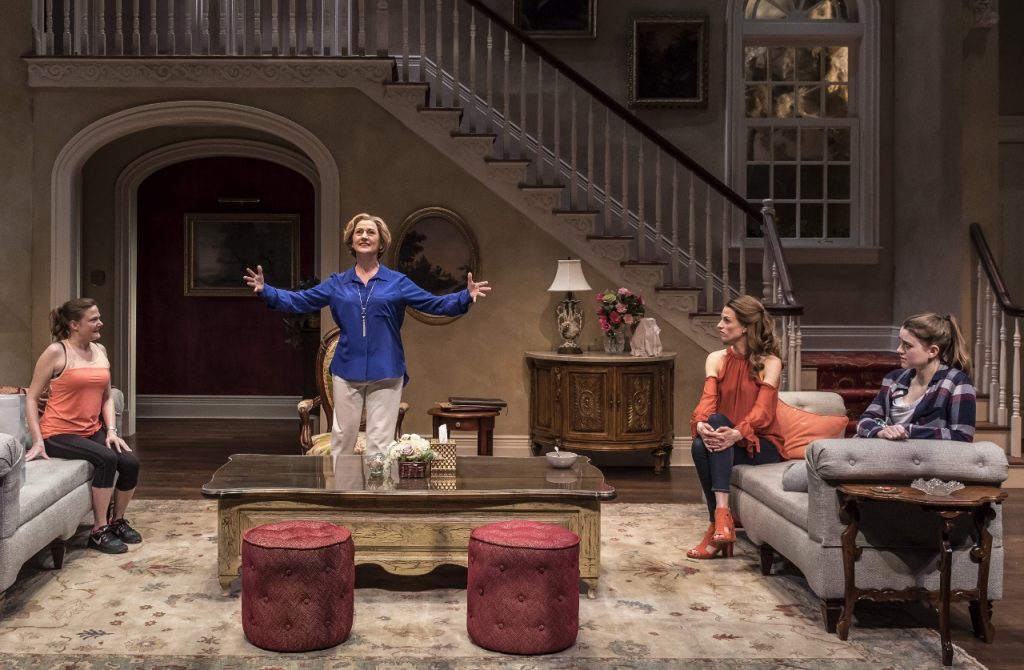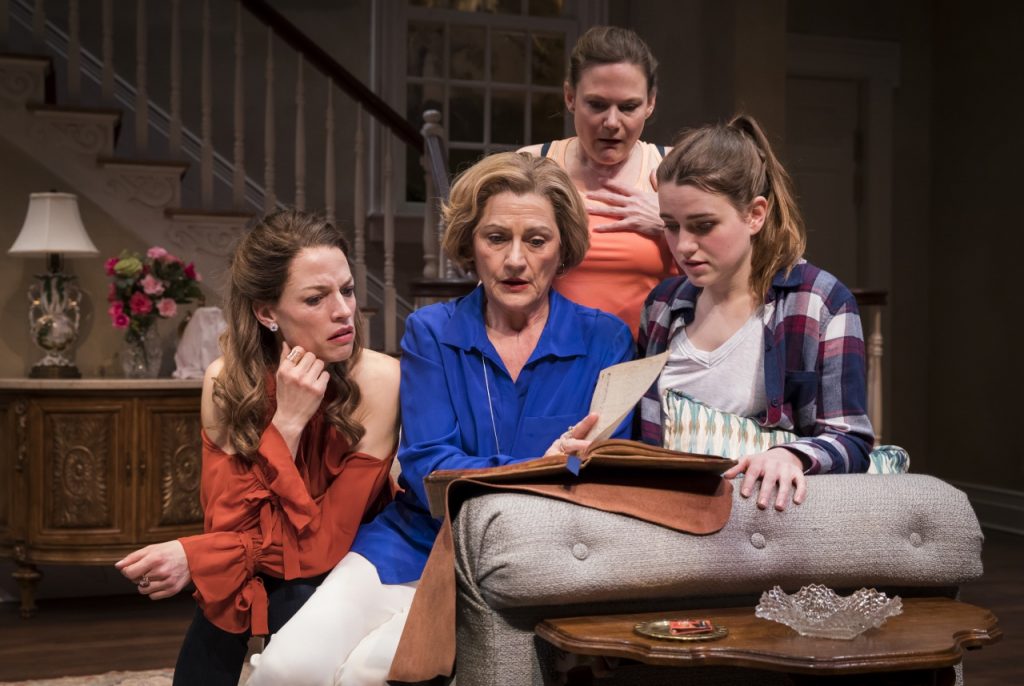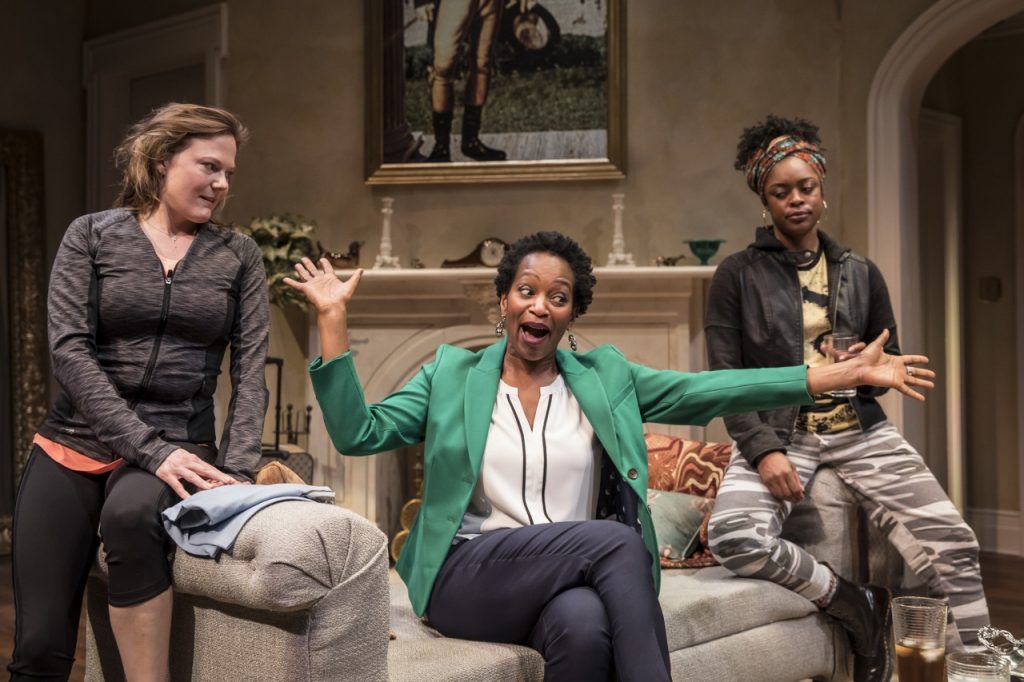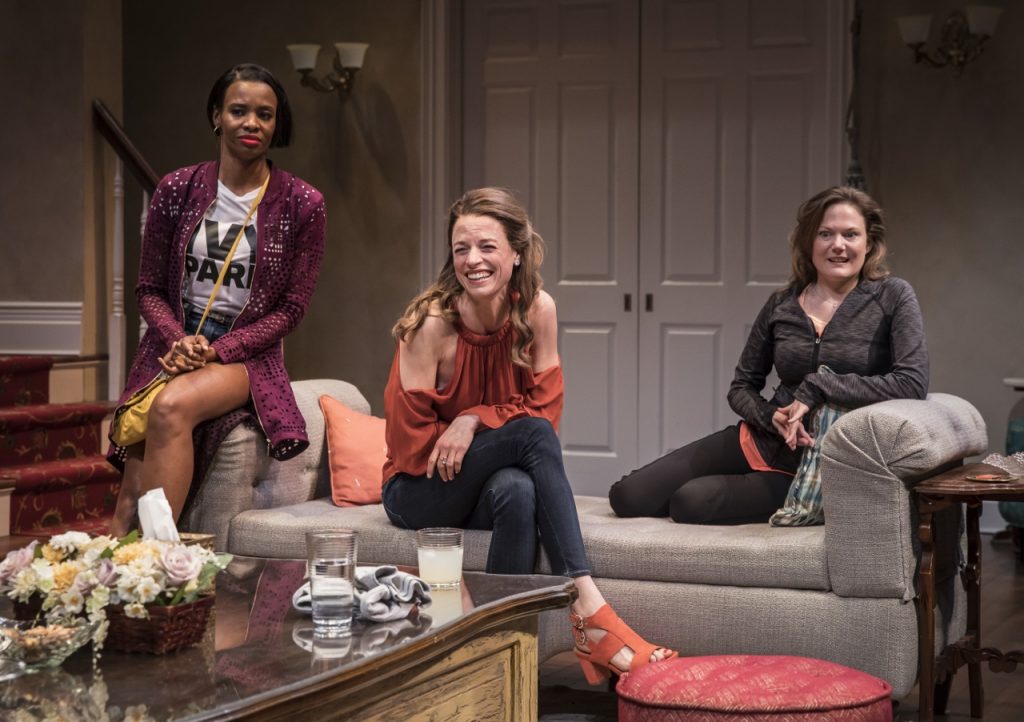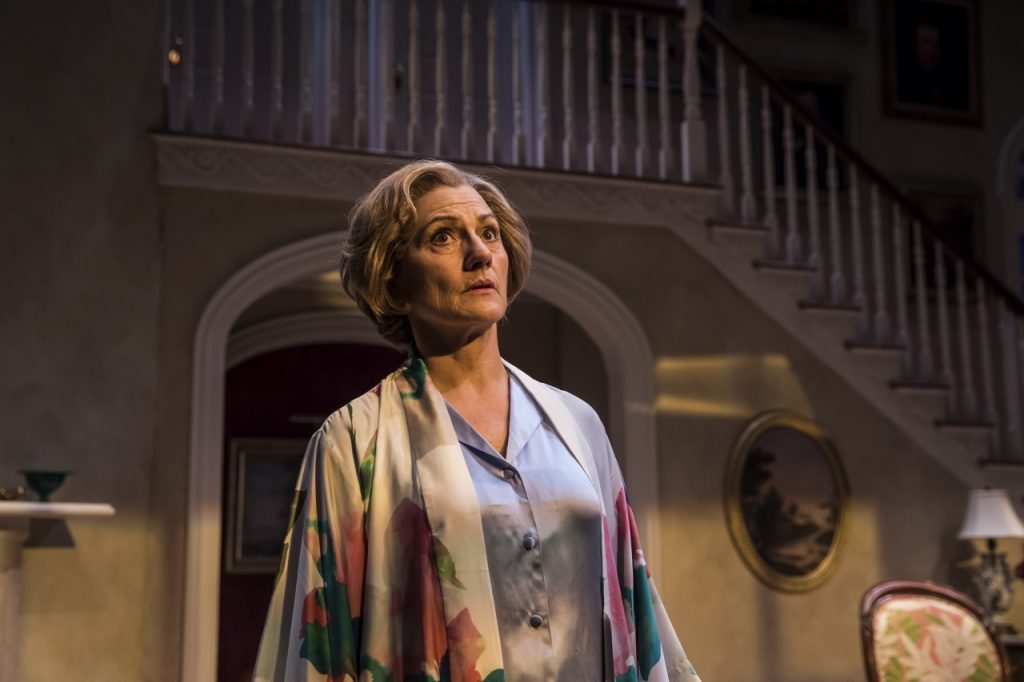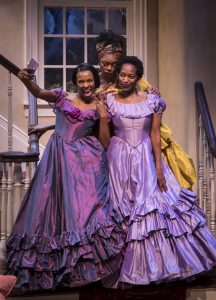RIDICULOUS REVENGE
 It’s so well-intentioned that the results are doubly deplorable. Lookingglass Theatre Company’s Plantation!, a world premiere by ensemble member Kevin Douglas staged by their own David Schwimmer, might have mattered. That’s the saddest thing about this clumsy comedy. Its goal is golden — to explore the painful payback of retroactive justice. Its worthy subject is reparations, damages delivered to compensate the victims’ offspring for the cumulative curse of chattel bondage.
It’s so well-intentioned that the results are doubly deplorable. Lookingglass Theatre Company’s Plantation!, a world premiere by ensemble member Kevin Douglas staged by their own David Schwimmer, might have mattered. That’s the saddest thing about this clumsy comedy. Its goal is golden — to explore the painful payback of retroactive justice. Its worthy subject is reparations, damages delivered to compensate the victims’ offspring for the cumulative curse of chattel bondage.
The play’s very legitimate question “Who took care of the land?” deserves a considered and compassionate response. Even if slavery can’t be cured post-facto. There are, after all, considerable consolations in “giving back.” But turning righteous retribution into crude burlesque does neither side any favors.
The extended-family “meeting” at the heart of this 95-minute confection takes place on Thanksgiving, always an excuse for volatile reunions. Phony with false nostalgia, the locale is Courtney O’Neill’s magnificent recreation of an ornate antebellum drawing room dripping with gentility and festooned with family portraits. A Texas treasure trove from 1857, it’s the ancestral plantation house of the Wrights, a clan of cotton farmers who have now diversified into agro-business.
It’s also where the Wright matriarch Lillian (Janet Ulrich Brooks in fearsome fettle) assembles her dipsy-doodle daughters. Clumsily called the “KKK” after their first names, these condescending brats are as unpleasant as Cinderella’s stepsisters: All still living in the family manse are spoiled, selfish, and racist Kimberly (Louise Lamson); airheaded and addicted Kara (Linsey Page Morton); and haplessly imbecilic Kayley (Grace Smith).
A Facebook genealogical investigation, the discovery of a ledger detailing the Wrights’ human holdings, and perhaps seeing the movie Twelve Years a Slave have convinced Lillian, now seeking forgiveness and redemption after a lifetime of unearned entitlement, to do the right thing: It seems that the Wrights’ paterfamilias, their dynasty-founding great-great-grandfather, had deeply cherished Sarah, an unsold and secretly adored slave who died, unacknowledged, at the age of 93. Lillian now believes that their huge home ought to have been Sarah’s, and should properly be bequeathed to her descendants — three African-American sisters from Chicago also named Wright.
With heavy irony, these “other” Wrights — allegedly 1/15 white — prove to be eerily similar to their colorless cousins thrice removed (as in equally stereotypical). These darker descendants are also cunningly contrasted siblings: BLM activist Sydney (Ericka Ratcliff); the favorite Madison (Tamberla Perry); and moderate-minded London (Lily Mojekwu). They are alternately delighted, disturbed, or divided by this unexpected gift from a persecuting past. Their burning question “Is it family if y’all used to own us?” deserves a thoughtful reply.
But Douglas wastes no time on dignified debate: The proverbial chickens have come home to roost. So the fur flies as the seemingly wronged Wright girls, a trio of bleached bitches and cracked belles fighting for their future, indulge in mean-girl, character-assassinating smears on these Yankee interlopers. Condemning their un-kissing cousins as strippers, radicals or druggies, they hope to convince their mother to rescind her renunciation.
But they don’t stop there: Plantation’s next-to-last scene — a forced farce that’s absurdly idiotic and contagiously ugly — makes you question the sanity of this entire enterprise. Let’s just say that the Dixie Wrights resort and revert to the lowest shenanigans of white supremacists. And then we’re supposed to believe, against all plausibility, that an amicable settlement can still happen.
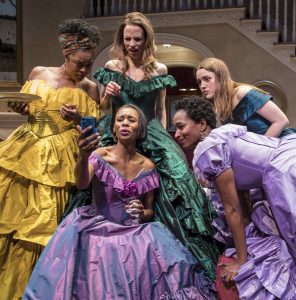 To reconcile the play’s polarities, Douglas invents two contrived “levelings.” In the first, thanks to designer Mara Blumenfeld, all seven women dress for dinner in the crinoline-clad ball gowns of Southern debutantes straight out of Gone with the Wind (with Hannah Gomez, playing the sardonic servant Diana, outrageously attired as a mammy). One costume cliché in effect fits all.
To reconcile the play’s polarities, Douglas invents two contrived “levelings.” In the first, thanks to designer Mara Blumenfeld, all seven women dress for dinner in the crinoline-clad ball gowns of Southern debutantes straight out of Gone with the Wind (with Hannah Gomez, playing the sardonic servant Diana, outrageously attired as a mammy). One costume cliché in effect fits all.
The second flattener of fate comes with the Caucasians’ sudden economic downturn. It equalizes the women’s expectations and makes co-existence, even co-habitation, thinkable. But this stupidly insulting resolution is just too easy. It trivializes the real-life arguments for and against reparations.
 Out of desperation or conviction (the result is the same), Schwimmer gives Douglas’s hijinks high energy and sassy spunk. So, yes, at times this one-act’s depiction of the cost of “letting go” of a poisoned past almost atones for its sloppy silliness and failures of nerve. Almost.
Out of desperation or conviction (the result is the same), Schwimmer gives Douglas’s hijinks high energy and sassy spunk. So, yes, at times this one-act’s depiction of the cost of “letting go” of a poisoned past almost atones for its sloppy silliness and failures of nerve. Almost.
Plantation!
Lookingglass Theatre Company
Water Tower Water Works
821 N. Michigan Ave.
ends on April 22, 2018
for tickets, call 312.337.0665
or visit Lookingglass
for more shows, visit Theatre in Chicago
